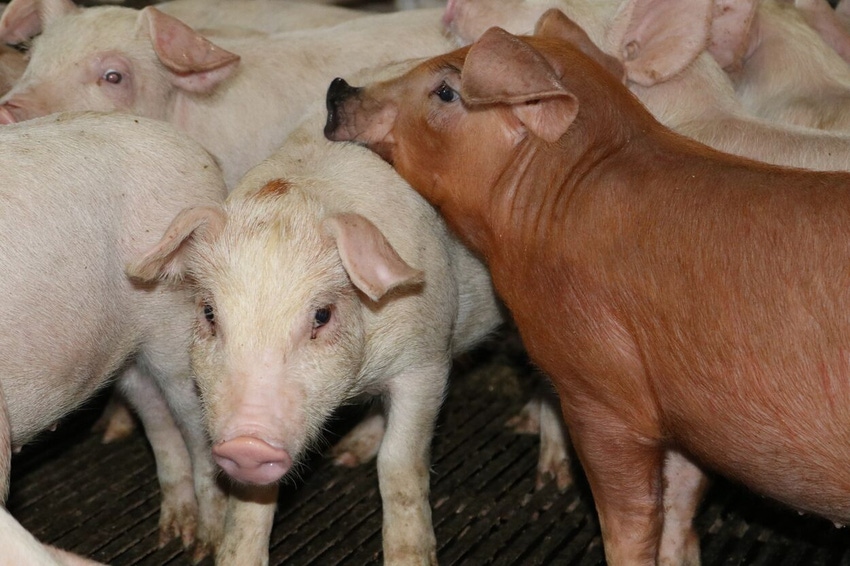REPRODIVAC receives funding for vaccine, diagnostic development
In the swine industry, annual losses to PRRSV in the United States and Europe alone are estimated to exceed $600 million and €1.5 billion, respectively.
November 28, 2022

Horizon Europe, the European Union research and innovation funding program, has funded the new project REPRODIVAC. The aim of the project will be to develop innovative vaccines and diagnostics for endemic and zoonotic reproductive pathogens of livestock to improve animal welfare, reduce antimicrobial usage in farming, protect public health with a 'One Health' perspective, and strengthen the profitability of food animal systems.
Wageningen University & Research, represented by Wageningen Bioveterinary Research, is one of the partners in this international consortium which spans academia and industry. The REPRODIVAC project will run from 2022 through to 2027 with an overall budget of about € 6.3 million.
For the next five years, 16 partners representing 7 European countries (Italy, United Kingdom, Spain, France, Netherlands, Germany, Switzerland) will work together to tackle four of the most economically important livestock diseases. In particular the activities will be focused on: ovine enzootic abortion, Q fever, swine brucellosis and porcine reproductive and respiratory syndrome.
The consortium spans academia and industry with complementary expertise including structural biology, microbiology, immunology, plant and veterinary sciences. This will enable an interdisciplinary approach:
Applying reverse and structural vaccinology to select and design vaccine and diagnostic candidate antigens.
Exploiting relevant protein expression systems to produce these antigens.
Developing rationally attenuated and viral vectored vaccines
Setting-up a suite of molecular and immunological diagnostic tests, including point-of-care tests, to discriminate vaccinated from infected animals.
Worldwide impact
All bacterial diseases addressed in the program have a zoonotic potential and worldwide impact. Ovine enzootic abortion cause by Chlamydia abortus, is one of the most common infectious causes of abortion in small ruminants worldwide. Coxiella burnetii causes Q fever, an important and highly contagious zoonotic disease of worldwide impact. Swine brucellosis is a neglected disease with high zoonotic impact in the Americas and Asia, with the potential to re-emerge in Europe. This disease is caused by Brucella suis. PRRS is responsible for major economic losses in the swine industry worldwide and is not a zoönose.
Infectious diseases of livestock threaten food security and public health and cause a major economic (value of global animal health market equal to €40 billion) and animal welfare burden. In the pig industry, for instance, annual losses to PRRSV in the United States and Europe alone are estimated to exceed $600 million and €1.5 billion, respectively.
Strengthen research capacity
REPRODIVAC will strengthen European capacity and competence by establishing a comprehensive network of preeminent European scientists, international organizations, and industry partners to advance research and promote technological developments. Participants in the project are:
ENEA (Italian National Agency for New Technologies, Energy and Sustainable Economic Development, Italy, Coordinator)
WUR (Wageningen University and Research, The Netherlands, Partner)
UDL (University of Lleida, Spain, Partner)
CEP (Consorci Centre d’estudis Porcins, Spain, Affiliated Entity)
CEVA (CEVA Animal Health, France, Partner)
FLI (Friedrich-Loeffler Institut, Germany, Partner)
CITA (Centro de Investigacion y Technologia Agroalimentaria de Aragon, Spain, Partner)
UON (University of Navarra, Spain, Partner)
UMU (University of Murcia, Spain, Partner)
EPFL (Ecole Polytechnique Fédérale de Lausanne, Switzerland, Associated Partner)
GSP (Associacio Porcsa-Grup de Sanejament Porcì, Spain, Associated Partner)
CZV (CZ Vaccines S.A., Spain, Associated Partner)
GDX (Global DX Ltd, United Kingdom, Associated Partner)
TPI, The Pirbright Institute, United Kingdom, Associated Partner)
MRI (Moredun Research Institute, United Kingdom, Associated Partner)
ENSL (Ecole Normale Supérieure de Lyon, France, Partner)
Vaccine development
The new vaccines and diagnostics will be further developed and made accessible to users by the industrial partners involved in the project. Thereby, by using the latest technologies in vaccine and diagnostic development REPRODIVAC will improve animal health and welfare, sustainability of the livestock sector and productivity, as well as human health.
Source: Wageningen University & Research, which is solely responsible for the information provided, and wholly owns the information. Informa Business Media and all its subsidiaries are not responsible for any of the content contained in this information asset.
You May Also Like



